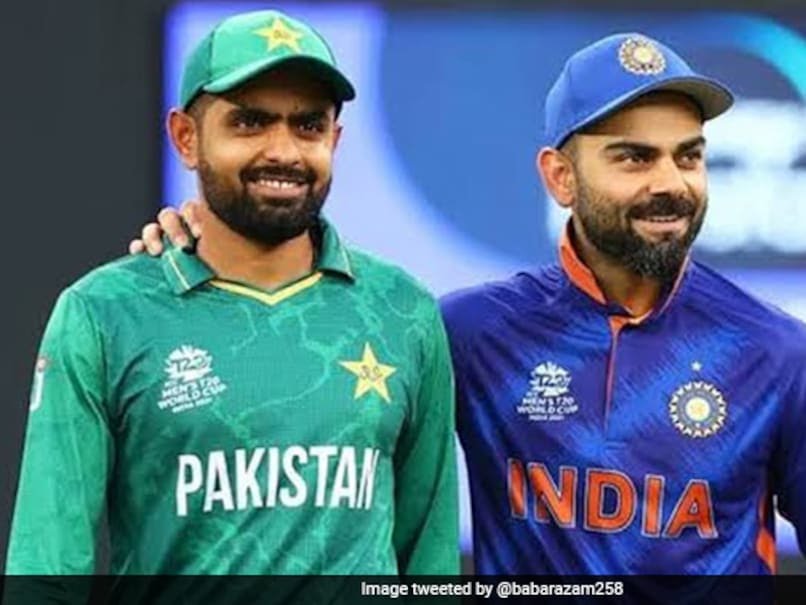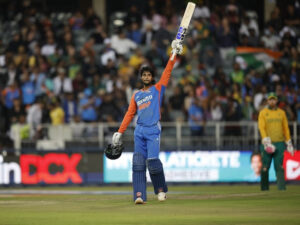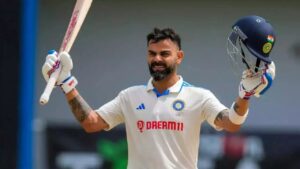
Babar Azam vs Virat Kohli: Ravichandran Ashwin’s Blunt Verdict Settles the Debate ‘Once and For All’
Ravichandran Ashwin’s recent comments, dismissing any comparison between Babar Azam and Virat Kohli, have sent shockwaves through the cricketing world. In a statement bound to inflame passions, Ashwin bluntly declared, “Babar Azam and Virat Kohli shouldn’t be mentioned in the same line.” While Kohli remains a modern cricketing icon with a legacy already set in stone, Ashwin’s take has sparked a heated debate, with Pakistani fans in uproar and many questioning his motives.
The question is: Was Ashwin right? Or did he open a Pandora’s box that will only further divide the already fierce India-Pakistan cricket rivalry?
Why the Comparison Was Inevitable
Babar Azam has often been hailed as the new face of Pakistani cricket. With a classic technique and the ability to anchor innings under pressure, many pundits have drawn parallels between him and a young Virat Kohli. Babar’s prolific run-scoring and calm demeanor have earned him respect not just in Pakistan but globally.
Virat Kohli, on the other hand, is already a legend. His aggression, insatiable hunger for runs, and numerous records speak for themselves. Kohli’s consistency across all formats, particularly in high-pressure chases, sets him apart from most modern cricketers.
Yet, the comparison between the two has always seemed premature, especially considering Kohli’s long-standing dominance in the game. Many Indian fans, and apparently Ashwin himself, believe that Babar, despite his undeniable talent, has a long way to go before he can be placed in the same echelon as Kohli.
Ashwin’s Argument: Facts or National Bias?
Ashwin’s dismissal of Babar’s comparisons to Kohli could be seen as a reflection of the nationalistic fervor that often envelops India-Pakistan debates. To claim that Babar and Kohli should not even be mentioned in the same breath might be seen by some as disrespectful to Babar’s achievements. After all, Babar has shown glimpses of brilliance and has been Pakistan’s most reliable batsman for a number of years now.
On the other hand, Kohli’s resume is unparalleled. He has more than 25,000 international runs, with 76 centuries across formats. He’s led India to major wins, both as captain and as a match-winner in chases. His dominance in ODIs and T20s is almost unmatched, and even in Test cricket, he’s been a key figure in India’s rise to the top of the rankings.
Is it really unfair, then, for Ashwin to assert that Babar isn’t in the same league yet? While Babar may have the technique and temperament, he hasn’t yet produced the kind of consistent results Kohli has delivered year after year. Kohli’s legacy is cemented; Babar’s is still in the making.
The Numbers Don’t Lie — Or Do They?
When you look at the numbers, Kohli clearly edges Babar in terms of longevity and volume of runs. However, a closer look might suggest that Babar’s trajectory in international cricket is not too far off from where Kohli was at a similar stage in his career. In fact, Babar’s averages in both ODIs and T20s are better than Kohli’s were at the same point in time.
But cricket is more than just numbers. Kohli’s ability to rise in crucial moments — particularly in chases or in knockout stages of tournaments — is what sets him apart. This clutch factor is where Babar has been found wanting, especially in high-pressure situations against strong opposition like India. Until Babar can replicate Kohli’s knack for delivering when it truly matters, the comparisons will remain skewed in Kohli’s favor.
The Larger Picture: A Clash of Cultures
What makes this debate more intense is the backdrop of India-Pakistan cricket rivalry. Any comparison between players from these two nations tends to carry a political undertone, consciously or not. Kohli, representing India, comes from a system with one of the richest cricketing boards in the world, with extensive infrastructure and a wealth of opportunities. Babar, on the other hand, represents Pakistan — a country whose cricketing structure has often been in turmoil, riddled with administrative issues and a lack of resources.
Ashwin’s comments, therefore, may not just be about cricketing merit, but about a broader cultural and national pride. For Indian fans, Kohli represents the dominance and rise of Indian cricket over the last decade. For Pakistani fans, Babar Azam symbolizes hope and revival, especially in the post-Misbah and Afridi era. When Ashwin claims that Babar isn’t on Kohli’s level, he might inadvertently be underestimating the hurdles Babar has had to overcome just to stand where he is today.
The Verdict: Too Soon to End the Debate
In reality, comparing the two at this stage may be premature. Kohli’s career is entering its twilight, with his best days behind him, while Babar’s prime might still be ahead. Ashwin’s remarks may have been an attempt to quash what he sees as an undeserved comparison, but they’ve likely reignited the debate.
What cannot be denied is that Babar Azam is a special talent, and in a few years, if he continues on his current path, he may very well challenge Kohli’s records and dominance. Until then, the debate rages on, fueled by passion, patriotism, and performances on the cricket field. What is certain, however, is that Ashwin’s bold declaration won’t be the last word on the matter. As cricket fans across the globe know, this comparison is far from over.






